
Become a member
Join today and help protect nature, beauty and history – for everyone, for ever. Enjoy access to more than 500 places with National Trust membership.
The un-stately home and country estate
Ticknall, Derby, Derbyshire, DE73 7JF
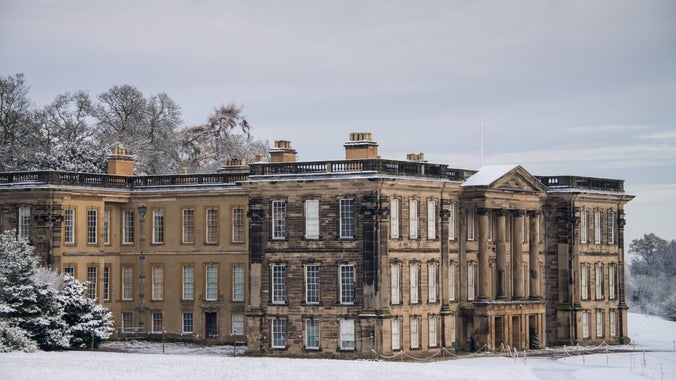
| M | T | W | T | F | S | S |
|---|---|---|---|---|---|---|
Open
Closed
| Asset | Opening time |
|---|---|
| House | Closed |
| Calke Park National Nature Reserve | 08:00 - 16:30 |
| Garden | 09:30 - 16:00 |
| Restaurant | 09:30 - 16:00 |
| Shop | 09:30 - 16:00 |
| Stables | 09:30 - 16:00 |
| Cycle Hire | Closed |
The restaurant will be closed from Wednesday 25 February until Thursday 26 March. The café will be open during this time, as well as smaller outlets where possible. Please visit Calke's 'Eating and Shopping' web page for more information.
| Ticket type | With Gift Aid | Without Gift Aid |
|---|---|---|
| Adult (18+) | £16.50 | £15.00 |
| Child (5-17) under 5s free | £8.30 | £7.50 |
| Family (2 Adults and up to 3 children) | £41.30 | £37.50 |
| Group (Adult 18+) | £14.25 | |
| Group (Child 5-17) | £7.13 |
| Ticket type | With Gift Aid | Without Gift Aid |
|---|---|---|
| Adult (18+) | £8.50 | |
| Child (5-17) under 5s free | £4.25 | |
| Family (2 Adults and up to 3 children) | £21.25 | |
| Group (Adult 18+) | £8.08 | |
| Group (Child 5-17) | £4.04 |
Welcome in all areas of Calke.
Browse the second-hand bookshop by the shop.
Enjoy light refreshments in the café.
The main car park is adjacent to the Ticket Office. There is an additional car park at Calke Explore.
Dogs are free to roam the parkland under close control. They're welcome in the stableyards, gardens, restaurant, shop and second-hand bookshop, provided they're on a short lead.
Three AC electric charging points are available in the car park at Calke Explore. Chargers can be accessed using mobile app, ChargePoint, or contactless payment device. Visit our EV charging partner, RAW Charging's website (www.rawcharging.com/drivers) to download the app before your visit.
Explore the gardens and parkland with a guided tour.
Enjoy light refreshments from the kiosk at Calke Explore.
Enjoy a country-style barn wedding in the Riding School.
Plants on sale outside the restaurant.
Enjoy hot and cold drinks, tasty snacks and light meals.
Browse the shop for special gifts.
Located in the stableyards, gardens and at Calke Explore.
Designated accessible parking in the main car park and at Calke Explore. Accessible toilets available in the stableyards, gardens and at Calke Explore. Wheelchair and tramper available to borrow. Gardens and parkland have hard gravel paths and some steep slopes.
Accessible routes are available to the gardens, the ground floor of the house and around the restaurant, café and shop. At Calke Explore, there is a short wheelchair and mobility scooter friendly trail, and the multi-use Tramway Trial.
Available in the stableyards, gardens, and at Calke Explore.
Speak to a member of the team at the ticket office to borrow a copy.
Available at Calke Explore
Available in the main car park adjacent to the Ticket Office and at Calke Explore.
Available at Calke in the Ticket Office, house, restaurant and café, shop, or at Calke Explore by the till counter of the kiosk.
Available to borrow where written information is in place.
Entrance to the restaurant and café both have a level path.
The floor is even and the entrance is through the restaurant.
Level access to the restaurant, café and shop.
Narrow corridors and glass cases within the house. Please leave large backpacks in the lockers within the bag storage room by the west side of the house (free of charge).
Tramper available for use throughout the gardens and areas of the parkland; however, it's strongly recommended that you pre-book.
Available inside and outside of the café and restaurant, in the house, and gardens, or there are benches and an outdoor seating area at Calke Explore.
In the Kitchen Garden, orchard area of the Physic Garden and park, there are areas of uneven terrain. The house and orangery both have steps, and the grotto and ice house are not wheelchair accessible.
A buggy service is available from 10am to 5pm, providing visitors with mobility needs or wheelchair users access to the house and gardens from the ticket office.
Virtual tour, room and object guides are available in the entrance hall to the house on request.
Available upon request subject to availability from the Ticket Office.
Make magical family memories at Calke Abbey this winter – from outdoor adventures and frosty walks to hanging out over a tasty treat.
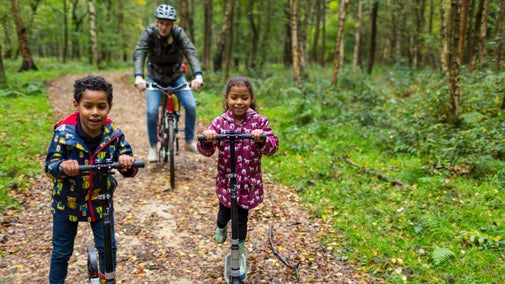
Calke Abbey is a three pawprint rated place. Visiting with your dog is one of the best ways to explore Calke's vast parkland, gardens and stableyards.

Discover what accessibility features we have at Calke, to help you enjoy your visit.
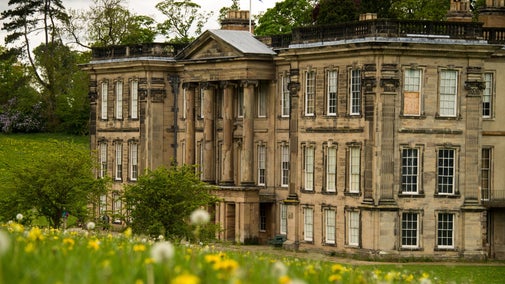
The Riding School at Calke Abbey is the perfect venue for a country-style barn wedding, nestled among 600 acres of country estate and rustic gardens – find out how to book your wedding here.

600-acre historic parkland with National Nature Reserves, ancient oaks including the ‘Old Man of Calke’, deer park and secluded ponds.
Walled garden bursting with seasonal colour, home to a rare surviving auricula theatre, domed orangery, faded glasshouses and gardener’s bothy.
Baroque-style mansion with peeling paintwork and abandoned rooms, portraying the dramatic decline of a country house estate.
Preserved as they were found, historic stableyard and riding school, created to house and exercise thoroughbred racehorses.
Overlooking the estate is a 19th-century restored church with bell tower, Gothic revival windows, glass window and family monuments.
Outdoor recreation area with natural play, cycle hire, walking trails, car park, toilets, Changing Places facility and refreshments kiosk.
Restaurant and café in the Stableyard, takeaway refreshments at Calke Explore and seasonal pop-up outlets year-round.
Gift shop, second-hand bookshop and plant sales in the Stableyard.
See what's coming up at Calke Abbey. From family activities to guided walks and talks, there's something for everyone.
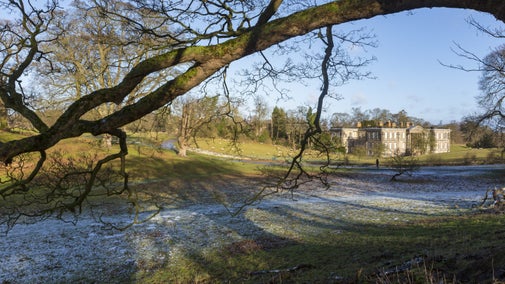
Uncover the secrets in the seams of the clothing collection at Calke. From elegant gowns to servants' uniforms, explore the lives of the family, staff and the world around Calke through the clothing worn and collected.
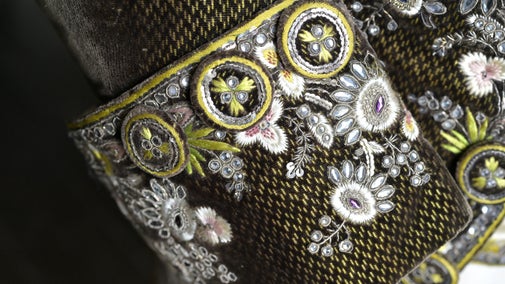
14 - 22 February | 9.30am - 4pm Discover the busy world beneath your feet on the 'Wonder World: Earth' trail as you hunt for minibeasts and discover fascinating facts about worms.
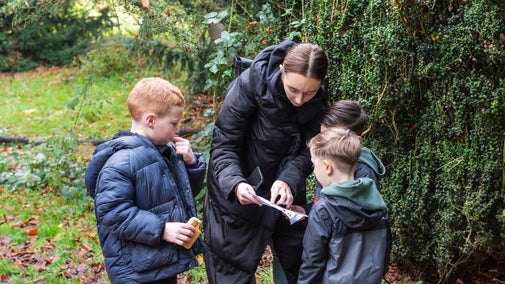
Make magical family memories at Calke Abbey this winter – from outdoor adventures and frosty walks to hanging out over a tasty treat.

Explore a vibrant and productive walled garden, look inside the faded glasshouses and explore Calke's fascinating collection of garden buildings.
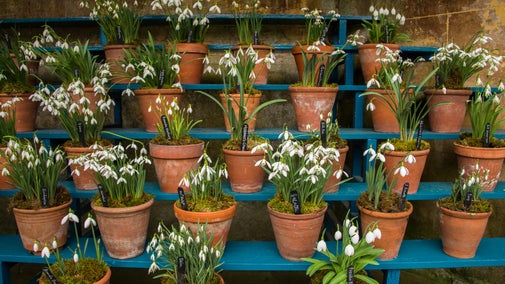
Reconnect with nature and make yourself at home in acres of historic parkland on the Calke Abbey estate in Derbyshire.
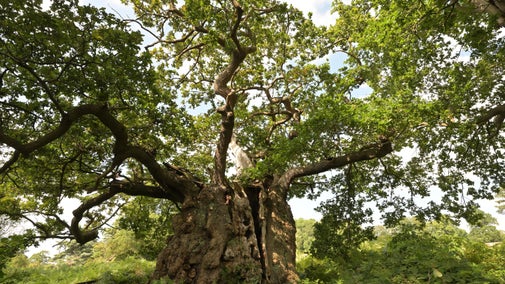
Discover the 'un-stately' home at Calke Abbey, where peeling paint and abandoned rooms vividly portray a period when many country houses didn't survive.

Calke Explore is the perfect base to begin your outdoor adventures at Calke Abbey, with walking and cycling routes, natural play areas and facilities for everyone.

Discover picturesque views of the Calke Estate on a bike ride along the Tramway Trail, with cycle hire and guided rides available.
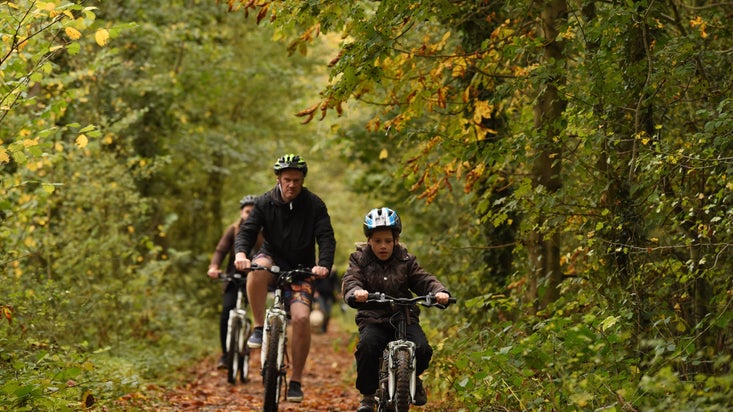
The Tramway Trail at Calke Abbey is an accessible, multi-use trail with a figure-of-eight route, so you can explore the wider estate at your own pace.

Enjoy a leisurely walk from Calke Abbey to nearby Staunton Harold, with views over the reservoir, arable fields and woodland.

Take a peaceful stroll through the historic parkland of Calke Abbey into Casey's Plantation, a new area of woodland where over 10,000 young trees are now growing.

There are plenty of places to refresh and refuel at Calke Abbey, where you'll find a café, shop, second-hand bookshop and seasonal pop-up facilities throughout the year.
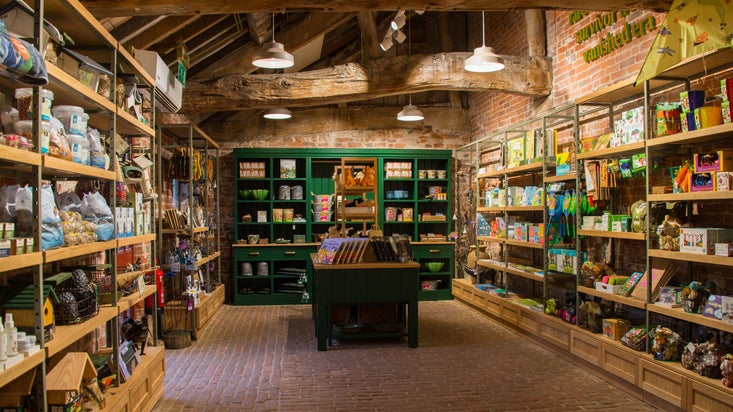

An intriguing pentagonal gate lodge with elegant interiors surrounded by Calke Abbey parkland.

The perfect get-together pad with seven bedrooms, a large garden and miles of parkland walks.

A cosy cottage packed full of character features and with stunning views over the Calke Estate.

A former gatehouse to Calke Abbey, this cottage now stands in a peaceful backwater.
Discover the busy world beneath your feet this February half term. Follow a self-led trail inspired by 'Wonder World: Earth', hunt for minibeasts and uncover fascinating facts about worms and underground life.
Uncover the secrets in the seams of the clothing collection at Calke Abbey on a new tour.
Come along for a hands-on storytelling session for little explorers, with crafts to enjoy together or take home.
Join us for a calm, inclusive storytelling session with sign-supported story time and relaxed creative activities.
Dig deeper into the hidden world beneath your feet, with storytelling and hands-on crafts inspired by 'Wonder World: Earth'.
Visit some of Calke’s hidden gems tucked away in corners of the estate and see how part of the estate was once a busy industrial area.
Join Curly Magpie in the Riding School for the bustling spring fair, with handmade artisan gifts to vintage items and local food suppliers.
Join Soulful Sanctuary for a full day yoga retreat at Calke, including a nourishing lunch.
With peeling paintwork and overgrown courtyards, Calke Abbey tells the story of the dramatic decline of a country house estate. The house and stables are little restored, with many abandoned areas vividly portraying a period in the 20th century when numerous country houses did not survive to tell their story.
Discover powerful stories of a family who amassed a vast collection of hidden treasures. Visit the beautiful, yet faded walled gardens and explore the orangery, auricula theatre and the kitchen gardens. Escape into the ancient and fragile habitats of Calke Park and its National Nature Reserve.
Don't miss
• Discover the spectacular state bed with embroidered Chinese silk hangings, hidden for over 200 years.
• Meet the mighty 'Old Man of Calke', the estate's ancient oak tree.
• Watch fallow deer roaming through historic parkland.
• Walk or cycle the Tramway Trail for sweeping countryside views.
• Stroll through the pleasure grounds to the flower garden with its unique auricula theatre.
Calke Abbey is the place where time stood still. Discover the history of the 'unstately home' as a religious priory and family home for 12 generations.

From wildlife and woodland management to historic planting in the garden, discover more about the vital conservation work we do in the outdoors at Calke Abbey.
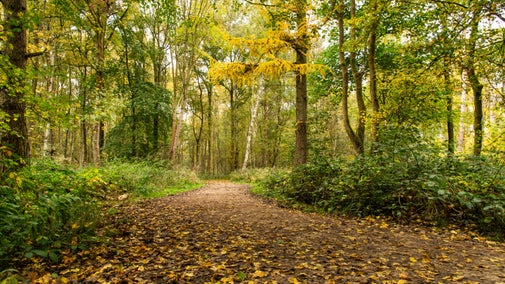
From everyday cleaning to specialist conservation, discover the work we do behind closed doors to preserve Calke Abbey and its collections for generations to come.

White-clawed crayfish have been successfully relocated from Calke Abbey to an Ark site. Discover more about this endangered species and the work we've carried out to help safeguard their future.

Rare hazel dormice have been reintroduced into the heart of the National Forest. Discover more about this endangered species and work we've carried out at Calke Abbey in Derbyshire to prepare for their arrival.

Discover a collection of contrasts at Calke Abbey, from lavish treasures such as the State Bed to a vast collection of decaying household objects, natural history and more.

Search for live volunteering opportunities, or register your interest with Calke Abbey

Thanks to a dedicated team of speakers, we offer a Talks Service to bring Calke Abbey and Stoneywell’s stories directly to your group or society.


Join today and help protect nature, beauty and history – for everyone, for ever. Enjoy access to more than 500 places with National Trust membership.
By sharing your email address you’re agreeing to receive marketing emails from the National Trust and confirm you’re 18 years old or over. Please see our for more information on how we look after your personal data.